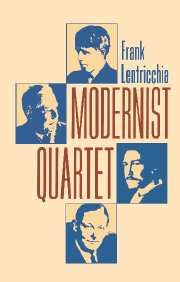Summary
TS. Eliot grew up knowing he was privileged and obligated. One of his biographers, Peter Ackroyd, remarks that “the Eliots were the aristocrats of nineteenth-century America (family motto: Tace et fac), part of that rising mercantile class which offered moral leadership to those who came after them; their self-imposed mission was to administer and to educate”: to educate by leading and administering; most of all, to educate. The poet's grandfather William Greenleaf Eliot left the Harvard Divinity School in order to establish the Unitarian faith in the frontier town of St. Louis, Missouri, in 1834, where he founded a church and (as Ackroyd puts it) “three schools, a university, a poor fund, and a sanitary commission.” His father, Henry Ware Eliot, grew wealthy from the proceeds of the Hydraulic-Press Brick Company, of which he was president. His mother, Charlotte Champe Eliot, was (one wants to say “of course”) a poet, some of whose verses were published in newspapers; most of which were pasted into her scrapbooks.
Social versus cultural responsibility, striking business prowess versus aesthetic sensibility: in America, these historically opposed domains of male and female influence were the heritage of the twentieth century's most famous and powerful taste-determining (recently much abused by the academy) man of letters. Thomas Stearns, a chip off the old family block, became a poet, a literary critic, a stalwart at Lloyds of London and Faber and Faber, a Nobel prize winner, and, in the peak years of his fame, the author of a prose of heavy concern (the cultural equivalent of his grandfather's sanitary commission).
- Type
- Chapter
- Information
- Modernist Quartet , pp. 239 - 286Publisher: Cambridge University PressPrint publication year: 1994

